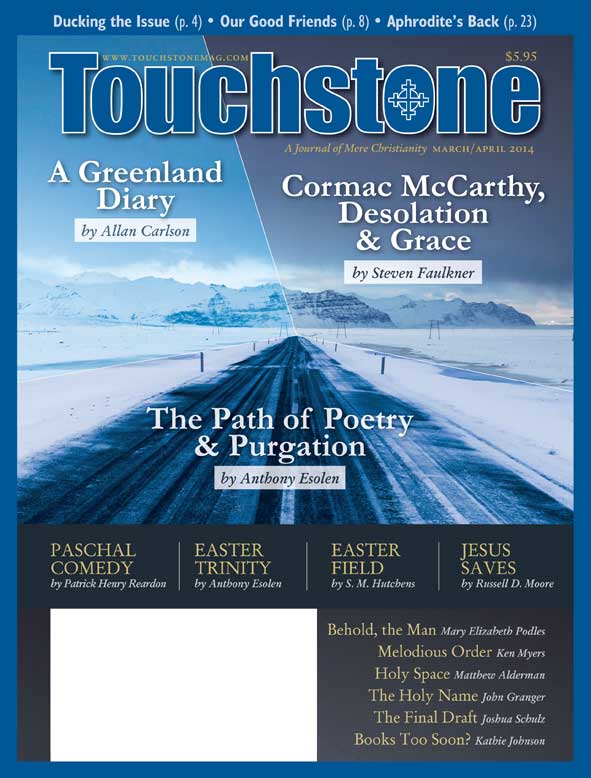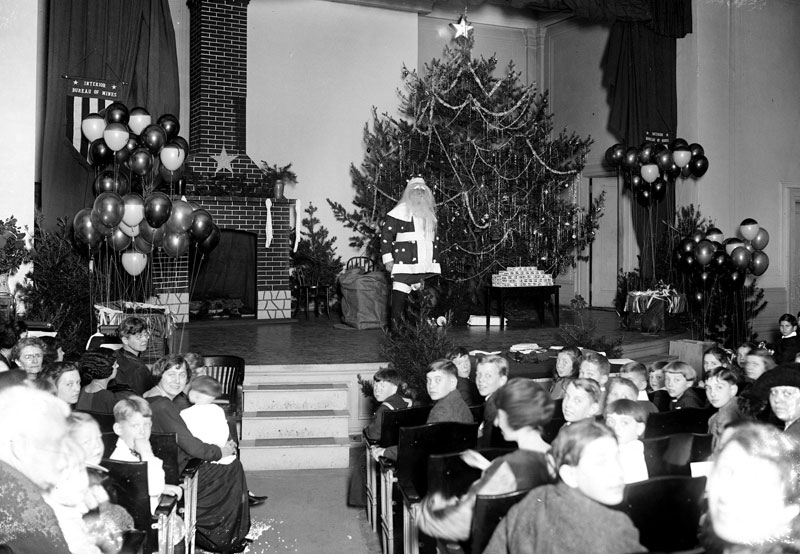MORTAL REMAINS by S. M. Hutchens
The Transcendental Canon
My friend David Mills, browsing in the bookstalls of New York, happened upon a copy of Nicolas Slonimsky's Lexicon of Musical Invective, which he very kindly purchased and sent to me with the note that I might find it interesting. I was familiar with Slonimsky as the editor of Baker's Biographical Dictionary of Musicians, and did indeed find Musical Invective interesting, but in an unexpected way: I found myself in frequent sympathy with the music critics whose stupidity Slonimsky meant to illustrate simply by quoting their criticisms, written mostly after early performances, of music and composers upon whom history has rendered an altogether differentjudgment.
As an orchestral musician I had myself played many of the pieces to which these critics referred, and found myself unsurprised by, and even in some agreement with, what those supposed dunderheads, accused by Slonimsky in his long introduction of "rejection of the unfamiliar," had to say about the music of the greats upon early hearing. Take, for example, the criticism of Beethoven's Ninth Symphony in the Boston Daily Atlas on
February 6, 1853:
If the best critics and orchestras have failed to find the meaning of Beethoven's Ninth Symphony, we may well be pardoned if we confess our inability to find any. The Adagio certainly possessed much beauty, but the other movements, particularly the last [which contains the setting of Schiller's An die Freude, perhaps the most famous and beloved of all Beethoven's musical offerings], appeared to be an incomprehensible union of strange harmonies. Beethoven was deaf when he wrote it. . . . It was the genius of the great man upon the ocean of harmony, without the compass which had so often guided him to his haven of success; the blind painter touching the canvas at random. We can sincerely say that rather than study this last work for beauties which do not exist, we had far rather hear the others where beauties are plain.
(p. 48)
We need not dwell on considerations that render such judgments risible in our day, when the genius of Beethoven (fairly recognized by the critic) has achieved a canonical status that throws a nimbus—brighter, granted, at some diameters than others—over everything the composer wrote, because Beethoven is, after all, Beethoven. This criticism was written, however, in the days before he was Himself—at least in Boston—and critical barbs were throwable not simply at inadequate performances of his Choral Symphony, but at the Symphony itself.
Considering the work as a whole, I can see what the critic means. In the Adagio he praises I have never quite figured out the point of the long fourth horn solo, and have, I confess, often wondered, during the expectant silence before the final movement, when the soloists are filing onstage, whether the whole might not be carried by the An die Freude, which most listeners find so inspiring, but which seems to transpire only after considerable orchestral diddling—the critic's "genius without a compass." But this, I know, now sounds like the musings of a heretic whose gifts in musical appreciation, unlike those of True Believers like Slonimsky, are summed up in his possession of two long ears.
Dependent upon Appreciation
There is, however, something very important to be learned here from the treatment of a composer who has crossed the invisible but incalculable line where the concept of "inspiration" becomes attached to the man himself, when his image is set up by common consent in the hall of the Great Composers, such that everything he has written, even that which might otherwise seem indifferent, partakes in his status as a canonical man. Because Beethoven is Beethoven, Mozart is Mozart, and Bach is Bach, one can rightly listen for that Greatness in everything they wrote, and refrain from rendering final judgment on the parts that lesser mortals might be tempted to think inferior, or even bad.
Those who scoff at True Believers in other contexts might take note that the idea of a canon of Scripture is also representative of an invisible but incalculable line in which the glory of a central and defining part renders the rest of the oeuvre, even those parts seemingly inferior, of a different sort than other literature, so that the biblical analogs of those curious fourth horn solos cannot be judged as though they were simply that and no more. They may now be seen as hard to grasp not because they are defective, but because they are, like the rest, transcendental, and so to be approached with understanding only by those whose Appreciation of the Composer makes the dawning of their light possible—which makes, because of their canonicity, common critical judgment, even when given by the best interpretive science, tentative at most.
In the case of Scriptures believed to be canonical by the Church because they are inspired by the Holy Spirit, the transcendental principle is at work in an infinitely higher sense than in merely human art, however exalted, for the Scriptures are founded (we believe) in a supervenient Christology where the human and divine are synthetically present in such a way as to make them ultimately incalculable and to render all interpretive science, as mere science, tentative, and all true understanding and proper use dependent upon, let us call it once again, "Appreciation."
S. M. Hutchens is a senior editor and longtime writer for Touchstone.
subscription options
Order
Print/Online Subscription

Get six issues (one year) of Touchstone PLUS full online access including pdf downloads for only $39.95. That's only $3.34 per month!
Order
Online Only
Subscription

Get a one-year full-access subscription to the Touchstone online archives for only $19.95. That's only $1.66 per month!
bulk subscriptions
Order Touchstone subscriptions in bulk and save $10 per sub! Each subscription includes 6 issues of Touchstone plus full online access to touchstonemag.com—including archives, videos, and pdf downloads of recent issues for only $29.95 each! Great for churches or study groups.
Transactions will be processed on a secure server.
more from the online archives
calling all readers
Please Donate
"There are magazines worth reading but few worth saving . . . Touchstone is just such a magazine."
—Alice von Hildebrand
"Here we do not concede one square millimeter of territory to falsehood, folly, contemporary sentimentality, or fashion. We speak the truth, and let God be our judge. . . . Touchstone is the one committedly Christian conservative journal."
—Anthony Esolen, Touchstone senior editor










